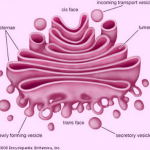Testing for urobilinogen in urine is important since it shows how well the liver is working. The walls of the intestine produce bilirubin, which is broken down into urobilinogen and flushed out by the kidneys. If a patient gets ill and red blood cells are ruptured, there will be an increase in bilirubin. If the intestine or the liver is infected, then there will be a significant rise in bilirubin. This is the reason why the lab must insist on testing for urobilinogen in the urine, since it is an indicator of what is going on in the body.
In a healthy person, the urine should contain less than 17umol/l. You should see a doctor if the level rises above this; since it gives indications of a hidden infection that has not manifested yet. It could also show that you are having a liver disease, hepatitis, or liver cirrhosis. All of these diseases are life-threatening and it is better to be tested so that you can take preventative action.
What causes urobilinogen levels in urine to change?
It is possible to have higher, or lower, levels of urobilinogen in urine. However, any change in the levels indicates that there is a problem with the body and medical attention should be sought.
Low levels of urobilinogen – If you find that the levels of urobilinogen in urine are lower in your body, the reason could be intake of antibiotics, which interfere with the flora that lines the walls of the intestines. The drugs that usually cause these, are strong drugs used for antibacterial treatment of jaundice, and probably high doses of ascorbic acid or ammonium chloride.
High levels of urobilinogen – High levels of urobilinogen in urine are alarming since it could mean that the patient has a disease that is interfering with the normal working of the liver. Cancer of the liver, and liver cirrhosis, are some of the diseases that cause this compound to increase in the body, and one should get immediate medical attention.
You can tell if you are suffering from this condition if you have light colored stools and dark colored urine. Urobilinogen is the one which gives stools their characteristic dark color. When you have this condition you will seem jaundiced since this is an indication of a problem with the liver.
What are the urobilinogen test and diagnosis?
Test sticks containing P-dimenthylaminobenzaldehyde are dipped into a sample of urine and the results are then diagnosed. The chemical ion the stick will turn pink if it reacts with a certain level of urobilinogen in the urine. Once the urobilinogen is detected, the test sample is then taken for another test, the Watson-Schwartz qualitative test, which will determine the concentration of urobilinogen in the urine. It is from this test where the doctor can tell whether the levels are critical or not.
A positive test will lead to other tests to see if you have enough blood cells, the blood count test; and a complete liver test, to see how well the liver is functioning. If there is an illness of the liver, the doctor has to trace the origin of the illness and treat it before the liver is affected more.
Treatment of abnormal Levels of urobilinogen in urine
Once the doctor has ascertained that you are suffering from this condition, he will give you the best treatment for the particular ailment that is causing your liver to fail. The reason why the doctor must use the best option is because the ailment must be contained urgently.
If you have low levels of urobilinogen, brought about by treatment of another condition, then he or she may change your treatment regimen, or stop it altogether. Within a short period the levels will rise to their proper levels.
If the high levels are caused by the destruction of red blood cells (hemolytic anemia), you will be required to take iron supplements which will replace or increase the red blood cell count in the blood. In severe cases, the iron supplements are given intravenously; but for mild cases, they are taken orally. Someone with severe hemolytic anemia should be kept under observation at a medical facility.
Similarly, if a disease of the liver is the cause of increased urobilinogen, then the patent must be monitored closely. If your liver is affected to a great extent, the patient should stay in a hospital where he or she will get strong antivirals. In cases where it is too late to save the liver, the patient should look for a liver transplant.
By drinking at least 8 glasses of water a day, you will keep the levels of urobilinogen within the healthy levels. All care must be observed when dealing with liver related issues, and you should avoid consuming substances that lead to liver cirrhosis.


My urine test results are as follows. Appearance – Pale. Color – yellow. PH. 7.0, Bilirubin +, Urobilinogen +, SG 1.025 Others Nil. Any danger ahead what other tests can I do.
if you are worried about your liver, it seems you should also get bloodwork done. Your SG seems normal, as does PH. Also, steer clear of alcohol and acetaminophen prior to additional testing.
can they use urobilinogen in place pregnancy test
My ulibirinogen level is 1.6. Is this something to worry about?
My Urine DR is as under;
Color. Yellow
SP gravity. 1.014
pH.5
Protein. -ve
Glucose. -ve
Ketone. -ve
Urobilinogen. -ve
Bilirubin. -ve
Hemoglobin. 50/ul(3+)
Nitrate. -ve
Leucocytes Est. -ve
RBCs. 1/HPF
(LEUCOCYTE, Epithelial cell,non squamous EPI Cell,Bacteria, Yeast and Crystal are Nil)
Plz comments.
My urobilinogen semi qn is 4.0 is that serious?
My ulibirinogen level is 4.0. Is this something to worry about?
What can i do my Urobilinogen is 2, my pH is 5.5
I am also anemic, type 2 diabetes, and hypothyroidism. What is good way to treat?
My ulibirinogen level is 4.0. Is this something to worry about?
My urobilinogen is 2. I have been taking a daily vit. c but I have episodes of severe abd. pain.